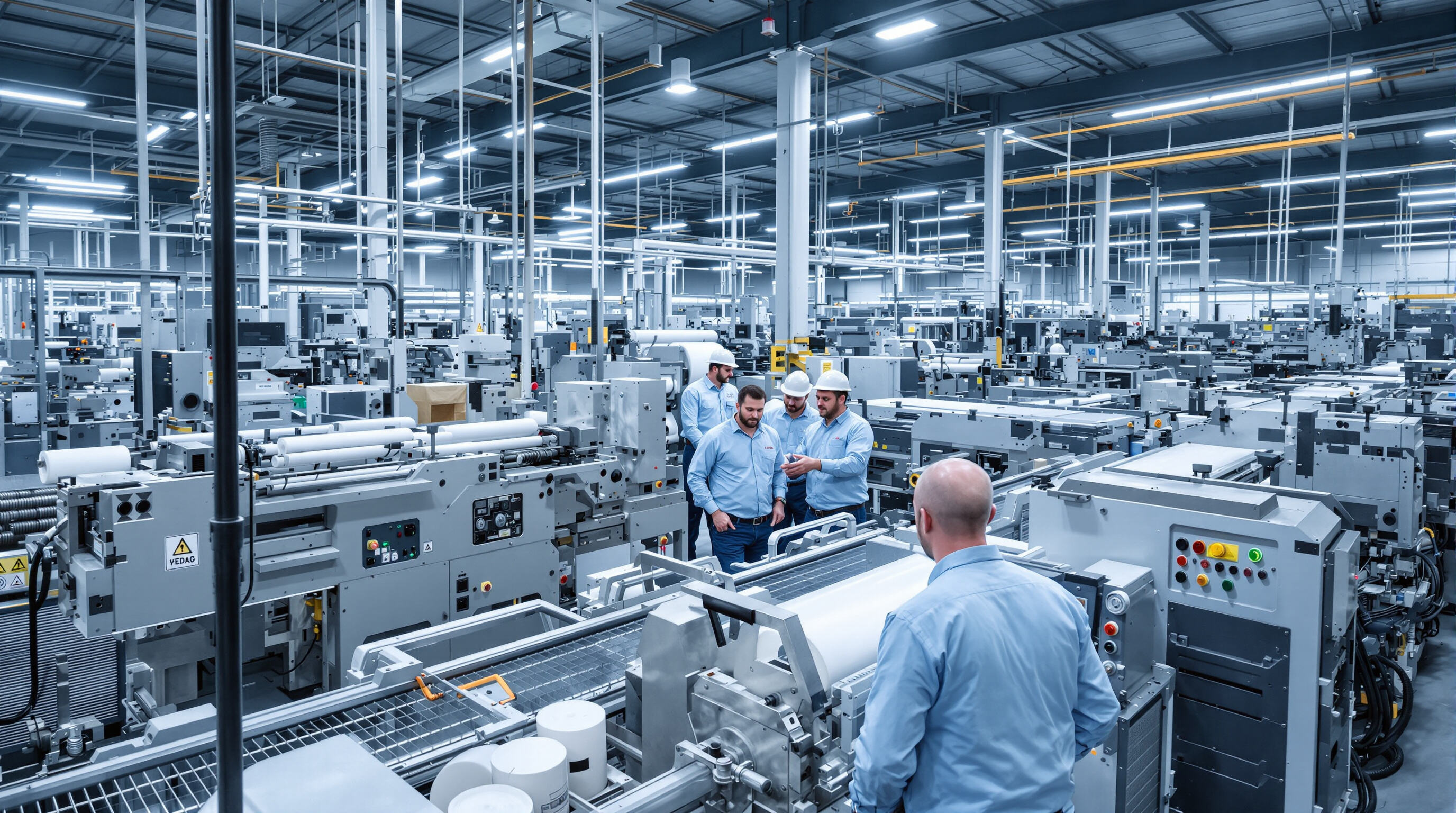In the plastic packaging industry, blown film extruders are core equipment for film production. Their performance and stability directly determine product quality and a company's production efficiency. As market demands for higher-quality packaging film rise, companies choosing blown film extruders must prioritize not only price but also a reliable manufacturer. A reliable manufacturer not only provides high-quality equipment but also offers after-sales service, technical support, and upgrades and expansions to help companies achieve long-term growth. So, how do you choose a reliable blown film extruder manufacturer?
1.Blown Film Extruder Manufacturer Experience and Industry Reputation
Looking for blown film extruder manufacturers? Go with those who've been around for 15 to 20 years minimum. Companies that stick around this long have seen their fair share of ups and downs, including major hiccups like the polymer supply issues back in 2020. They've had time to work out all the kinks after installing tens of thousands of machines across different industries. The real difference shows up in the final product quality too. Most established suppliers manage to keep defects below 1%, while new players tend to struggle with defect rates between 3 and 5%. Experience really does make a world of difference when it comes to consistent output.
1.1 Importance of Years in Operation and Proven Track Record
Manufacturers with decades of service demonstrate:
- Process mastery: Optimization of key parameters like melt temperature (±2°C tolerance) and bubble stability
- Supply chain resilience: Established partnerships with global component suppliers
- Failure mitigation: Database of 500+ operational scenarios to prevent line stoppages
1.2 How Experience Drives Innovation and Machine Reliability
Manufacturers with years under their belt typically put around 8 to 12 percent of what they make each year back into research and development. That's actually triple what most companies in the sector do on average. This investment leads to some pretty impressive innovations. We're talking things like self-adjusting die lips that maintain thickness within just half a percent variation, smart torque control systems in extruders powered by artificial intelligence, and energy-saving setups that slash electricity bills by nearly twenty percent. A recent report from the Plastics Machinery Alliance in 2023 found something interesting too. Companies that have been around a while fix problems much quicker than newcomers. Their special diagnostic tools let them tackle issues about two-thirds faster than others in the business.
2. Evaluating the Manufacturer's Qualifications and Reputation
2.1 Company Qualifications
Reliable manufacturers typically possess a complete business license, ISO quality management system certification, and CE certification. These certifications not only demonstrate that their equipment complies with relevant industry standards but also demonstrate the company's legitimacy and regulatory compliance.
2.2 Industry Reputation
Assess the manufacturer's reputation within the industry through customer reviews, industry forums, and trade show feedback. A company with a large number of long-term customers demonstrates trustworthy product quality and service.
2.3 Establishment and Experience
The longer a manufacturer has been established, the more experience they have accumulated and the more mature their product technology. Experienced manufacturers are better able to provide customized solutions based on customer needs.

3. Examining the Equipment's Technical Level and Performance
3.1 Technical R&D Capabilities
A reliable manufacturer should have its own R&D team to continuously update product designs, enhance automation, and improve energy efficiency.
3.2 Equipment Stability
In blown film production, indicators such as thickness uniformity, transparency, and tensile strength are crucial. When selecting equipment, focus on operational stability and product consistency.
3.3 Automation and Intelligence
Modern blown film extruders increasingly emphasize automation, such as:
Automatic Thickness Detection and Control System (Auto Gauge)
Internal Cooling System (IBC)
PLC Touchscreen Operation
Automatic Batching System
These technologies not only improve production efficiency but also reduce manual intervention and production errors.
4. Equipment Quality and Component Selection
4.1 Core Components
Screw and barrel: They should be made of high-quality alloy steel, resistant to wear and corrosion, to ensure stable extrusion.
Die: A well-designed flow channel can effectively improve thickness uniformity.
Air Ring and Cooling System: Dual air inlets or an automatic air ring can enhance cooling.
4.2 Standardized Parts
Reliable manufacturers typically use internationally renowned brands for electrical components, drivers, servo motors, and other components to ensure equipment reliability and facilitate replacement.
4.3 Processing Technology
A manufacturer's processing precision directly impacts equipment quality. It's important to understand whether the production facility is equipped with CNC machining centers, heat treatment equipment, and other facilities.
5. After-Sales Service and Technical Support
5.1 Installation and Training
Reliable manufacturers should provide on-site installation and commissioning services, as well as systematic training for customer operators to ensure a quick start.
5.2 Maintenance and Care
A comprehensive after-sales service system includes regular follow-up visits, remote technical support, and emergency response to help customers resolve issues promptly.
5.3 Spare Parts Supply
Part replacement is inevitable during long-term production. Choose a manufacturer that can provide long-term spare parts support to avoid production downtime due to spare parts shortages.
6. Price and Cost-Effectiveness
When selecting equipment, consider not only price but also cost-effectiveness:
- Low-priced equipment may reduce investment costs in the short term, but later on, it can lead to unstable operation, high energy consumption, and frequent maintenance, resulting in increased overall costs.
- High-quality equipment, while requiring a higher initial investment, can deliver higher production capacity, lower losses, and higher-quality film over its lifecycle, resulting in better overall returns.
Therefore, it is recommended that companies choose equipment with stable performance and comprehensive after-sales service within their budget, rather than simply pursuing the lowest price.
FAQ
1.Why is experience important when choosing a blown film extruder manufacturer?
Experience is crucial because it signifies a manufacturer’s ability to overcome industry challenges and deliver high-quality products consistently. Long-standing manufacturers are likely to have optimized their processes and established reliability.
2.What certifications should I look for in a blown film extruder manufacturer?
Key certifications to look for include ISO 9001 for quality management, CE for safety standards, and compliance with IEC and REACH regulations for international and environmental standards.
3.How do modular designs benefit manufacturers?
Modular designs allow for cost-effective upgrades and flexibility in scaling production capabilities without needing full system replacements, offering long-term savings and adaptability.
Table of Contents
- 1.Blown Film Extruder Manufacturer Experience and Industry Reputation
- 2. Evaluating the Manufacturer's Qualifications and Reputation
- 3. Examining the Equipment's Technical Level and Performance
- 4. Equipment Quality and Component Selection
- 5. After-Sales Service and Technical Support
- 6. Price and Cost-Effectiveness
- FAQ




